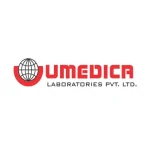Venlar manufactures and supplies a focused range of ETP/STP cultures, wastewater treatment chemicals, acid-free descalers, and degreasers. Our solutions are built to solve common treatment challenges like high COD/BOD, poor sludge settling, foaming, scaling, and energy inefficiency.
With 250+ plants served across Maharashtra, Gujarat, Goa, and Karnataka, we work with industries, societies, hotels, pharma units, and food processors to deliver fast results and long-term stability — all without exposing systems to unsafe chemicals or outdated practices.
We Solve Problems That Hurt Performance and Safety
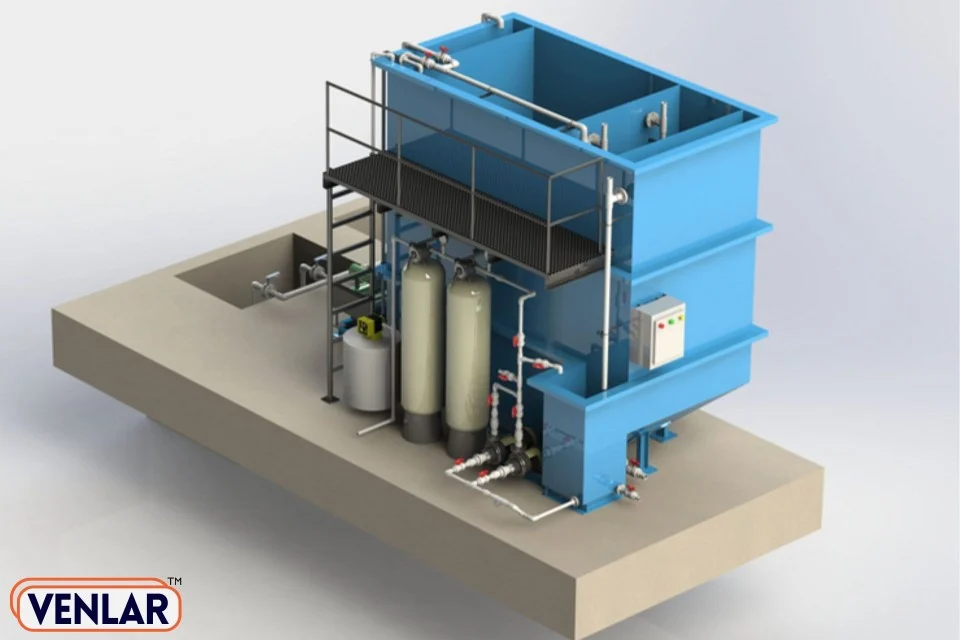
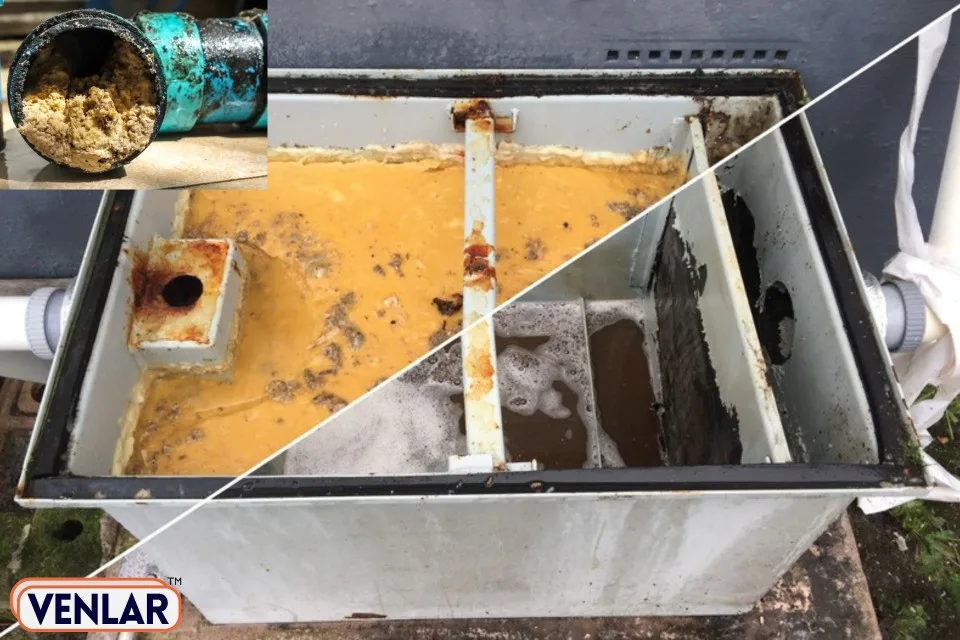
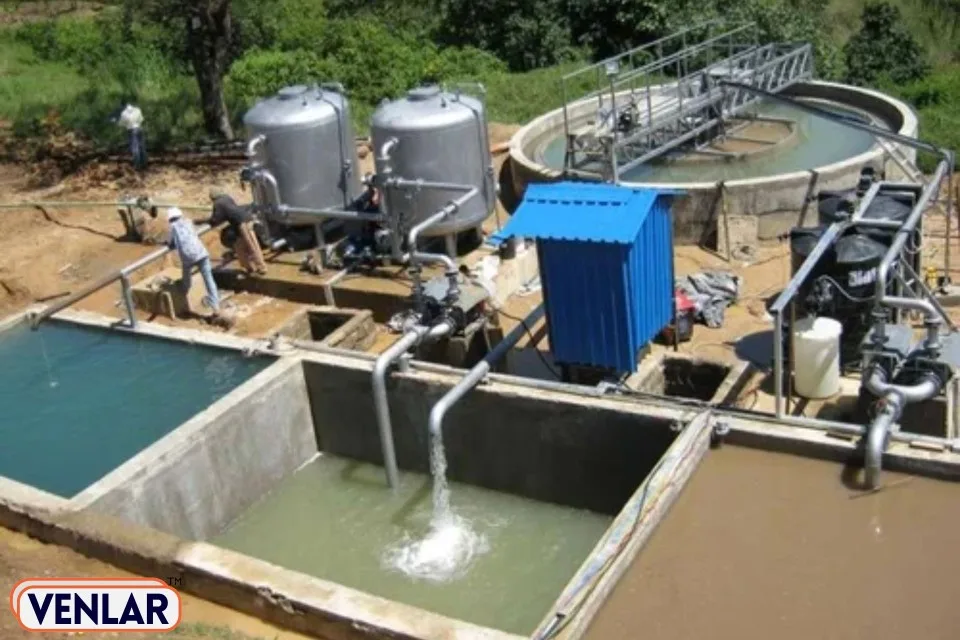

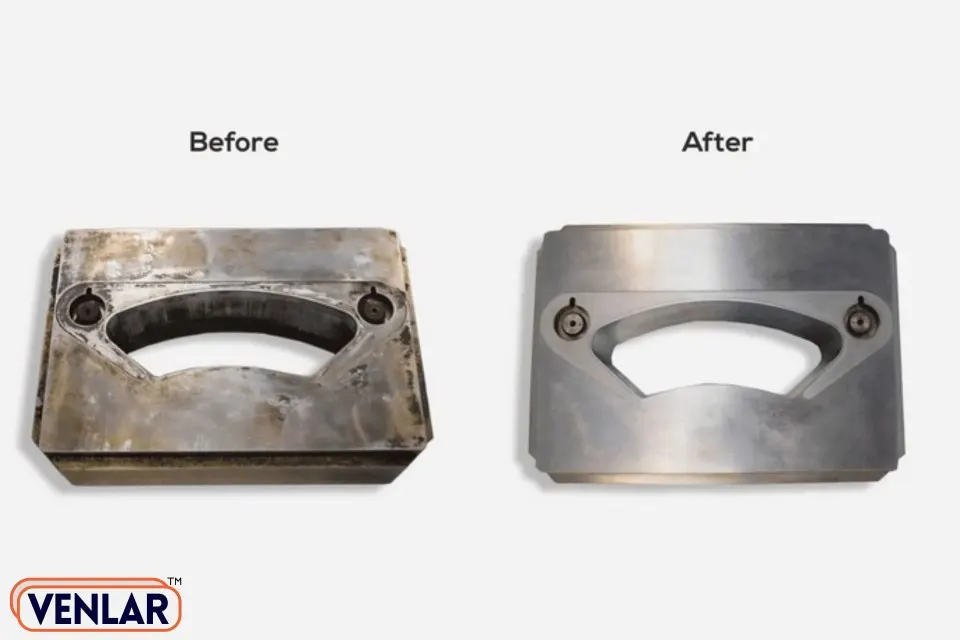
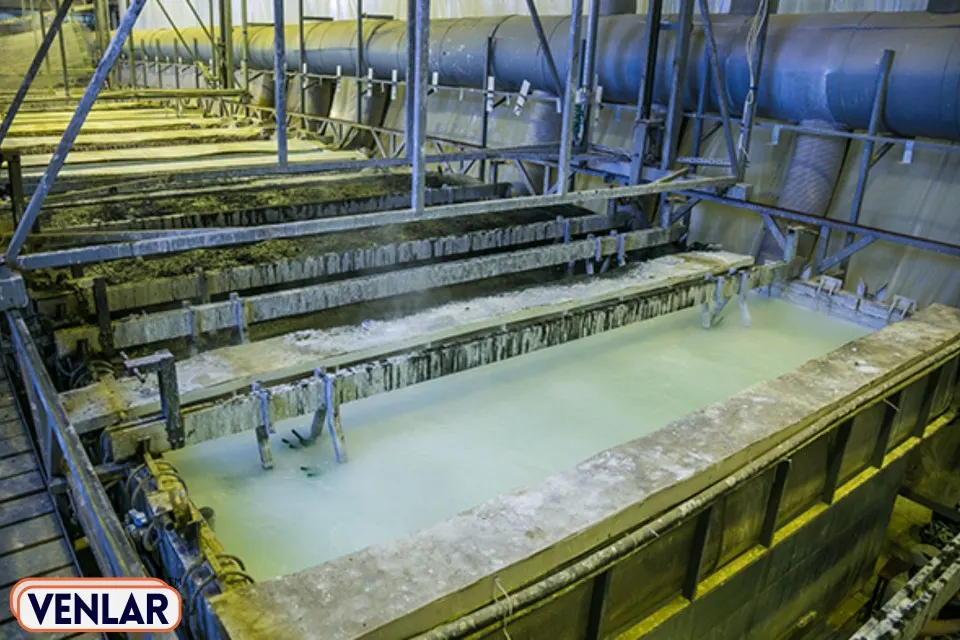
Our Divisions
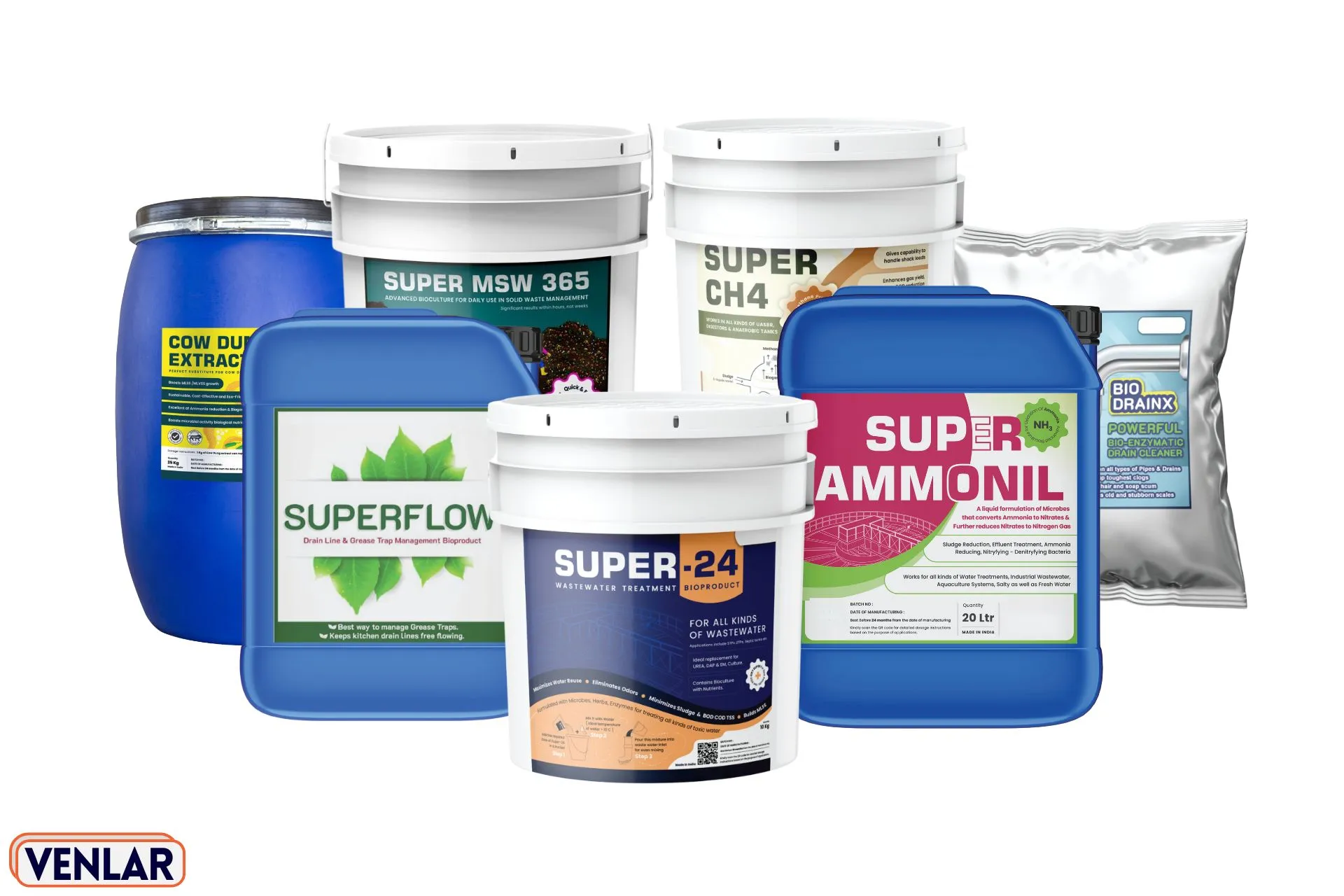
ETP/STP bio-cultures to build MLSS, reduce COD/BOD, and stabilize your plant. Fast-acting, easy-to-dose, and proven across 200+ plants.
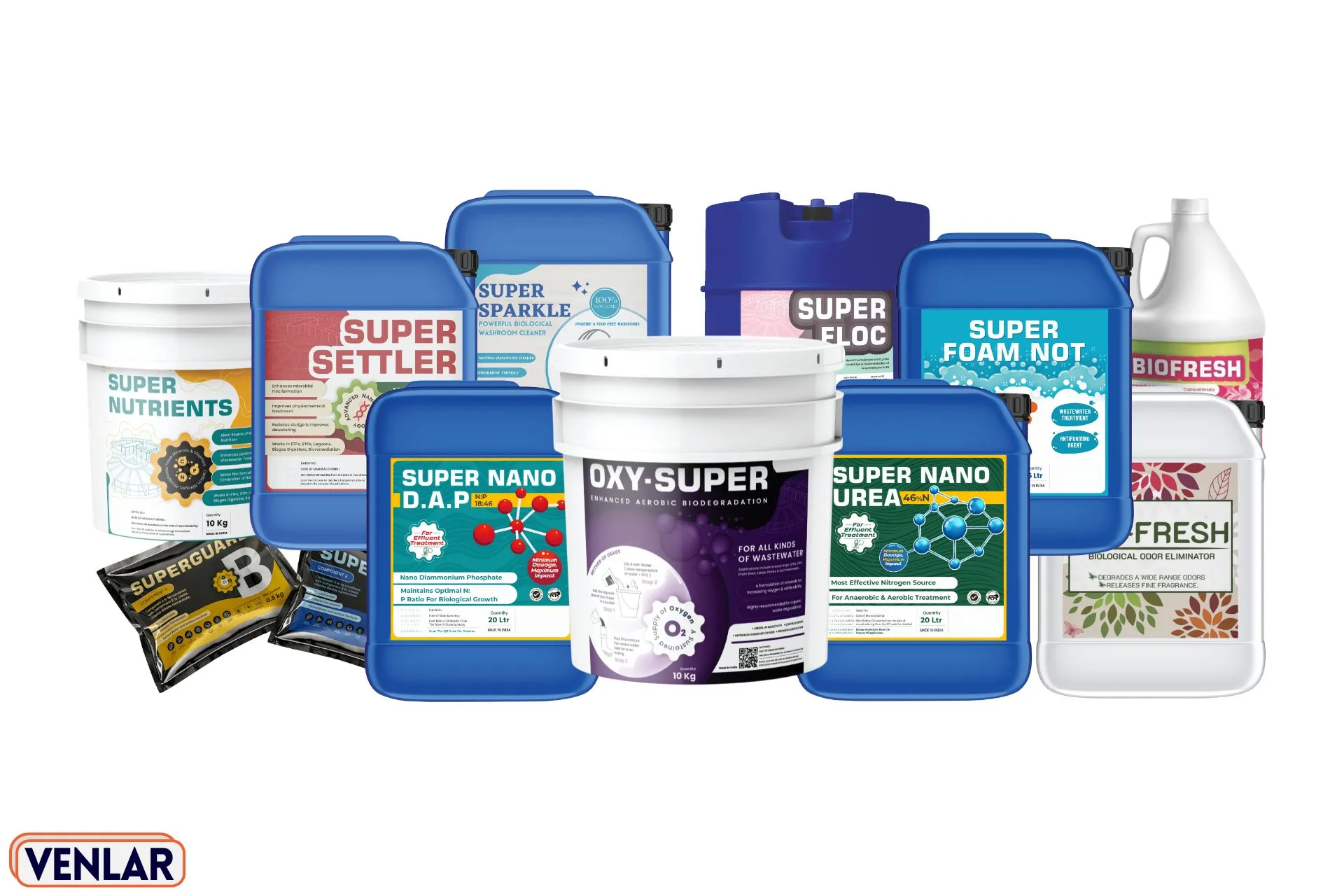
Oxygen boosters, nutrient supplements, coagulants, and defoamers for issues like low DO, ammonia spikes, and poor settling.
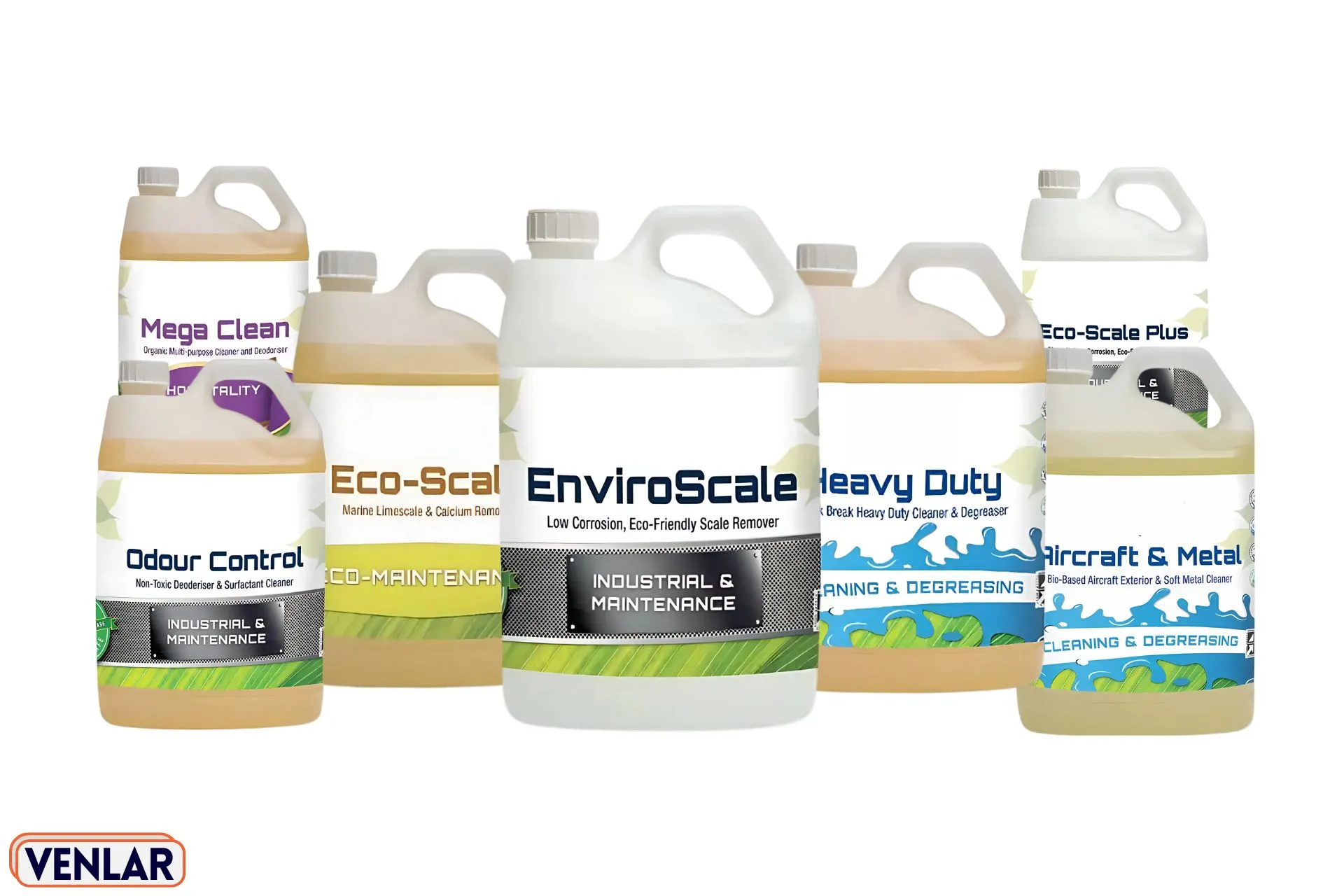
Plant-based cleaners that safely remove limescale, oil, and fat. Ideal for boilers, heat exchangers, and sensitive surfaces in food and pharma.
Microbial Cultures for Wastewater Treatment (ETP/STP)

ETP & STP Treatment Cultures. Microbial Solutions for ETP/STP. Our ready-to-dose microbial cultures help build MLSS, reduce COD/BOD, and stabilize biological processes in STPs and ETPs. Designed for fast commissioning, shock recovery, and daily operation — trusted by 200+ plants across industrial and municipal sectors.
Targeted Chemical Solutions for Wastewater Plants

We provide precision chemical solutions to fix low DO, ammonia buildup, poor settling, and foaming. From nano nutrients to oxygen boosters and sludge polymers — our formulations enhance performance without overdosing or trial-and-error.
Industrial Descalers & Degreasers for Equipment Cleaning

Eco-safe cleaners that replace acids and solvents — our descalers and degreasers remove scale, rust, grease, and oils without harming surfaces. Ideal for food, pharma, HVAC, and utility systems. Biodegradable, HACCP-compliant, and corrosion-free.
Why Venlar?
Request a Free Consultation, Contact Venlar Team now!
Partnering with Venlar means faster results and peace of mind. Our advanced bio-cultures dramatically cut sludge and reduce COD/BOD levels, our specialty chemicals fix critical parameters like nutrients and oxygen, and our consulting team provides on-site audits and troubleshooting. The result is regulatory compliance, odor-free operation, and significant savings in waste management.
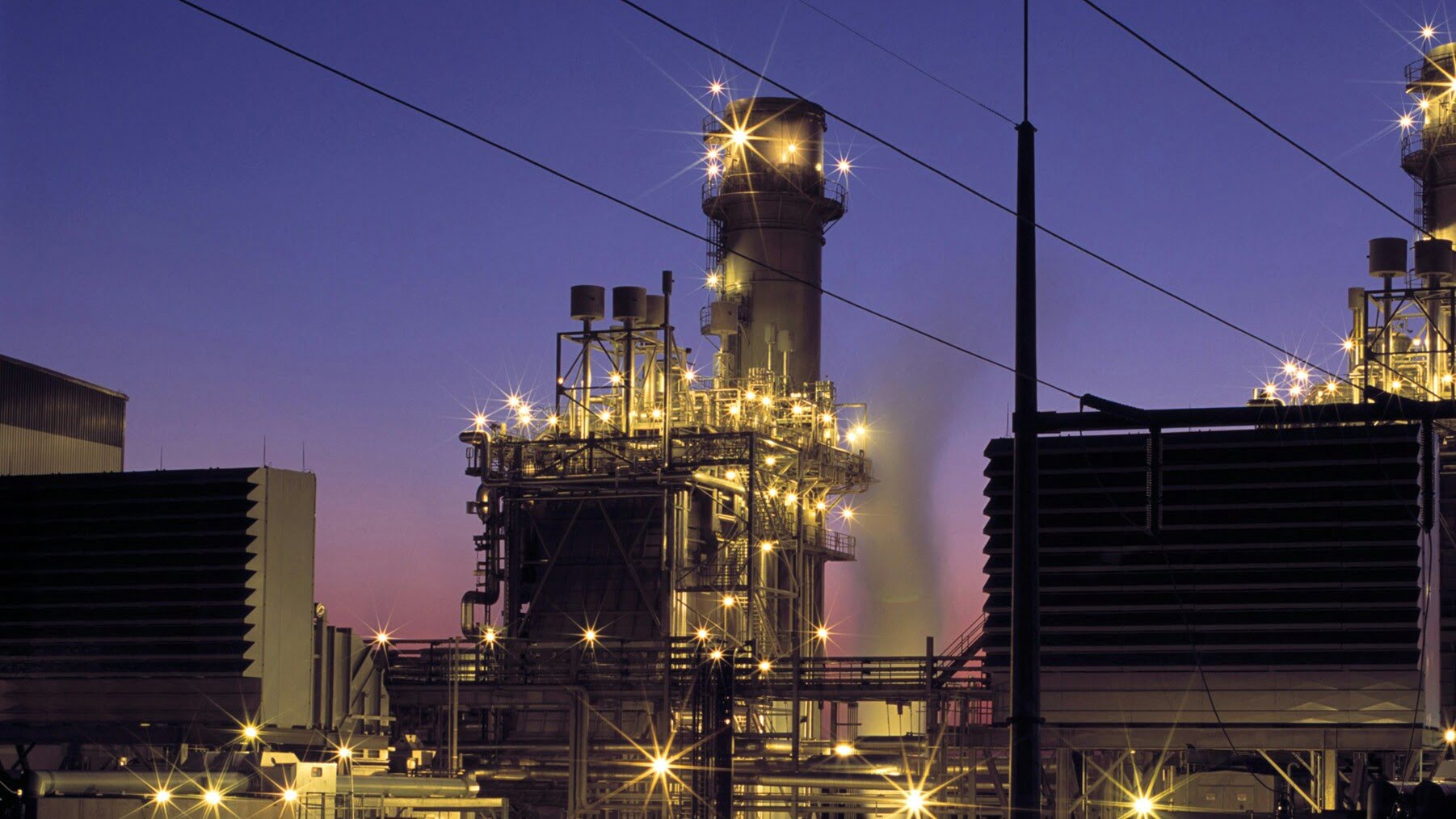
Venlar proudly serves clients across India – especially in Maharashtra, Gujarat, Goa, Karnataka and more – including Mumbai, Pune, Ahmedabad, Hyderabad, Bangalore, Kolkata, Chennai, and more. From pharmaceutical plants in Hyderabad to textile mills in Gujarat, our solutions are tailored to each industry’s effluent challenges. This local expertise ensures responsive support and insight into regional regulatory standards.
Our products are designed for the realities of Indian wastewater systems — from fluctuating loads to tight discharge norms. With Venlar, you get reliable products, proven dosing support, and responsive service.
Need a Solution?
Based in Navi Mumbai, we proudly serve clients across Maharashtra – from Mumbai, Pune, Nashik, Aurangabad, to neighboring states like Gujarat, Goa, and Karnataka.
We’re here to solve your treatment problem — be it a COD spike, sludge settling issue, scaling, or aeration shortfall. Our experts can help you find the right product and dose for your plant.







